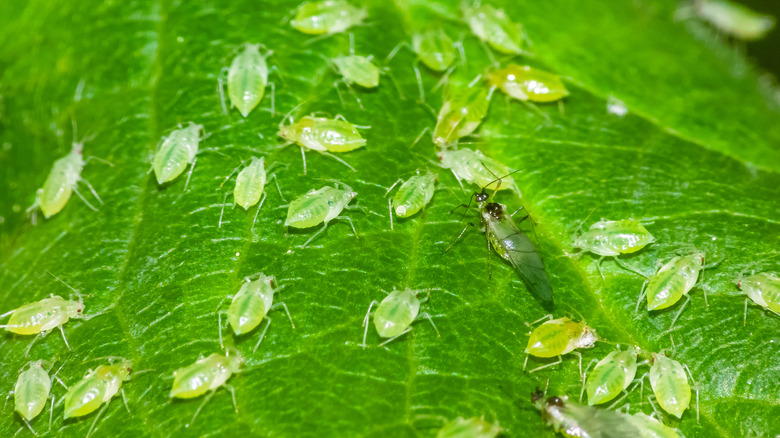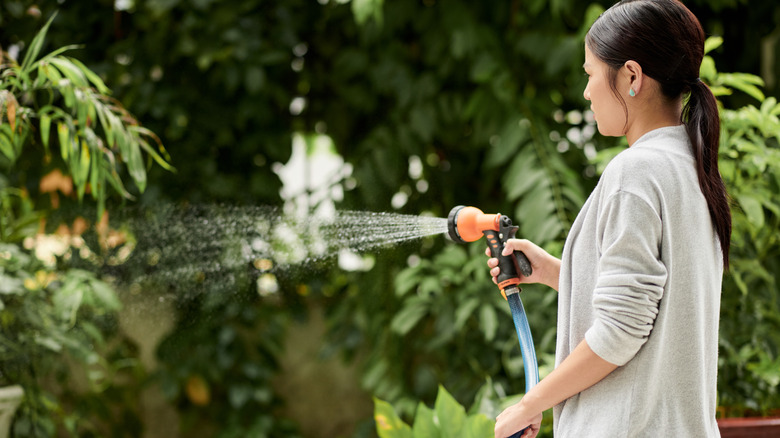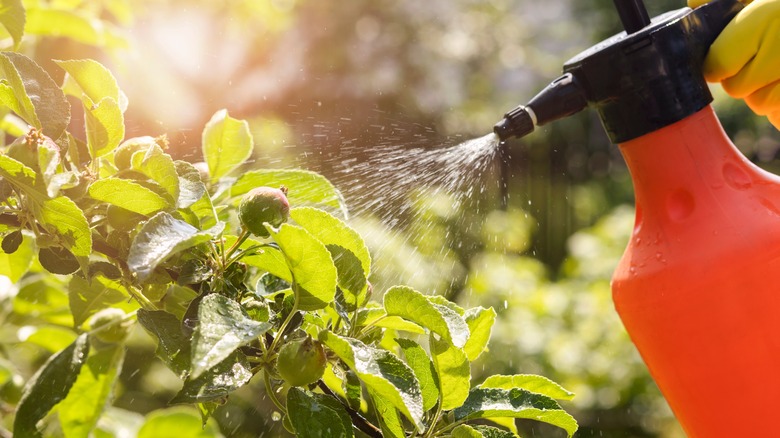The Lazy Gardeners' Trick For Dealing With Aphids In The Garden
Ah, aphids. If you have been in the gardening world for any length of time, you have probably heard about these little nuisance bugs that can prey on the health of your plants. You may also remember from elementary school science class that ladybugs love to feast on them. While there are countless products on the market aimed at helping you reduce aphid populations, there is an easier way to handle these pesky pests: simply ignore them.
This might seem counterintuitive — most problems in life don't go away if you ignore them, they get worse. However, in the case of aphids, many experts agree that the best method for managing aphids is to do nothing. Although aphids can cause damage to your plants (usually in the form of feasting on leaves and stems, which can harm their health and appearance), they generally aren't that big of a deal. In fact, the University of Minnesota suggests that "in most cases they cause little to no damage to the health of plants." The takeaway? Unless you are seeing your plants struggling to grow, or signs of damage like yellow and curled leaves, you can let nature take care of itself — many other bugs and animals will help get rid of aphids.
When in doubt, spray water
As mentioned, generally, aphids won't pose such severe risks to your plants that they require annihilation. If, however, you are growing concerned about how many aphids you are seeing on plants, you can always take matters into your own hands with some good old-fashioned water. While companies might try to sell you on expensive pesticides to wipe out the aphids, these small bugs are very fragile and easily disrupted — so much so that a spray of water will take care of the problem.
In order to eliminate the leaf-and-stem-crunching bugs, you'll just need a hose or spray bottle (if, for example, the plant is too far from your hose's reach). Simply screw on a sprayer attachment to your hose, then wet the plant in question until you can see that you have rinsed all of the aphids away. Remember when spraying your plants to be careful with the pressure setting: if the stream is too strong, it might damage your plant.
Harder hitting (but still lazy) methods of aphid removal
If you find that water alone isn't resolving your aphid issue, you might need to try a more aggressive treatment. When feeling desperate, you can test out using a spray bottle with both water and a small amount of soap. Mix 1 tablespoon of Castile soap (which is nice and gentle on your precious plants) into a gallon of water, then apply it to the affected areas. Using a pump sprayer will give your hands a much-needed break and help you complete the task more quickly, too. Alternatively, you can try water mixed with vinegar to keep aphids from destroying your plants.
If you're looking for a more hands-off and holistic way to take care of the aphids in your yard, you can always plant flowers that attract ladybugs. At best, it might draw more aphid-eating ladybugs to your yard, but at worst, you'll have more beautiful blooms to look at. Opt for flowers with heavy pollen output like marigolds and calendula, among others.


